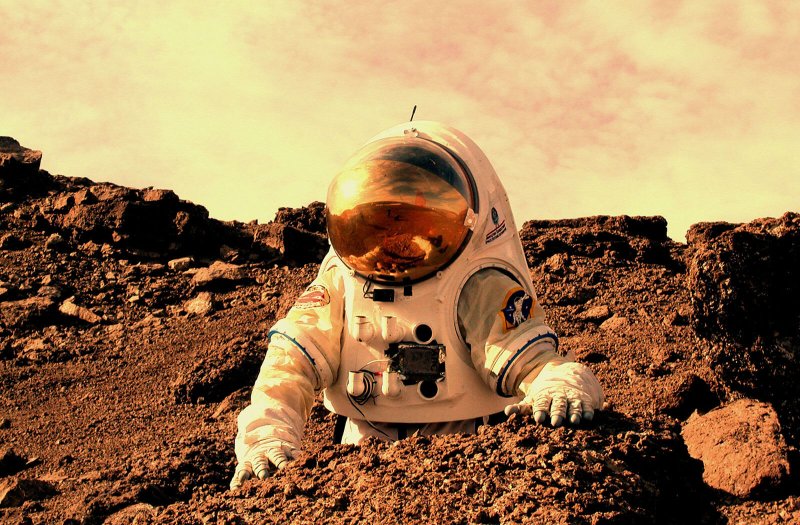NASA is now preparing for a human mission to Mars, but if our descendants ever shrug off their terrestrial bonds, it won’t be Homo sapiens who leaves, but another, more intelligently designed species. We’re not fit.
…
[Synthetic biologist George Church] argues: “One likely path for risk reduction in space does seem to involve biological engineering of adult would-be astronauts.” He has identified 40-some genes that might be advantageous for long-term spaceflight (and would benefit those who stayed behind, too). His list includes CTNNBI, which confers radiation resistance, LRP5, which builds adamantine bones, ESPA1 (common in Tibetans), which allows people to live with less oxygen, as well as a host of genes that might make us smarter, more memorious, or less anxious.…
If humans hope to leave Earth, we’ll need to be different. But if it’s possible to transform ourselves so radically, should we?
…
Scientists are telling us we should consciously direct our evolution, rather than surrender our fate to time, chance, and death—evolution’s historical servants. Of course, the inheritors who left Earth would be as different from sapiens as we are from Neanderthals. “There will be a speciation,” says [geneticist Chris] Mason. “It’s not if, it’s when.”
Read full, original post: The genetics (and ethics) of making humans fit for Mars































